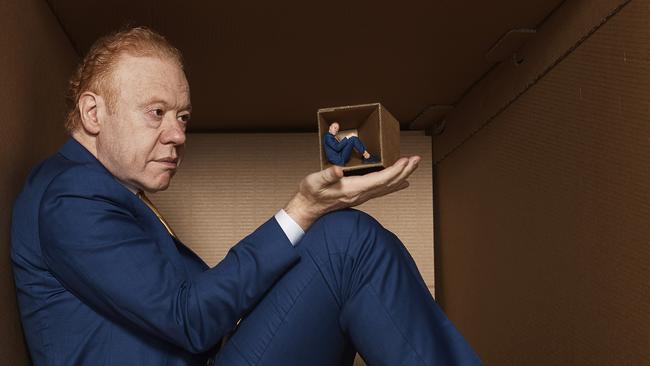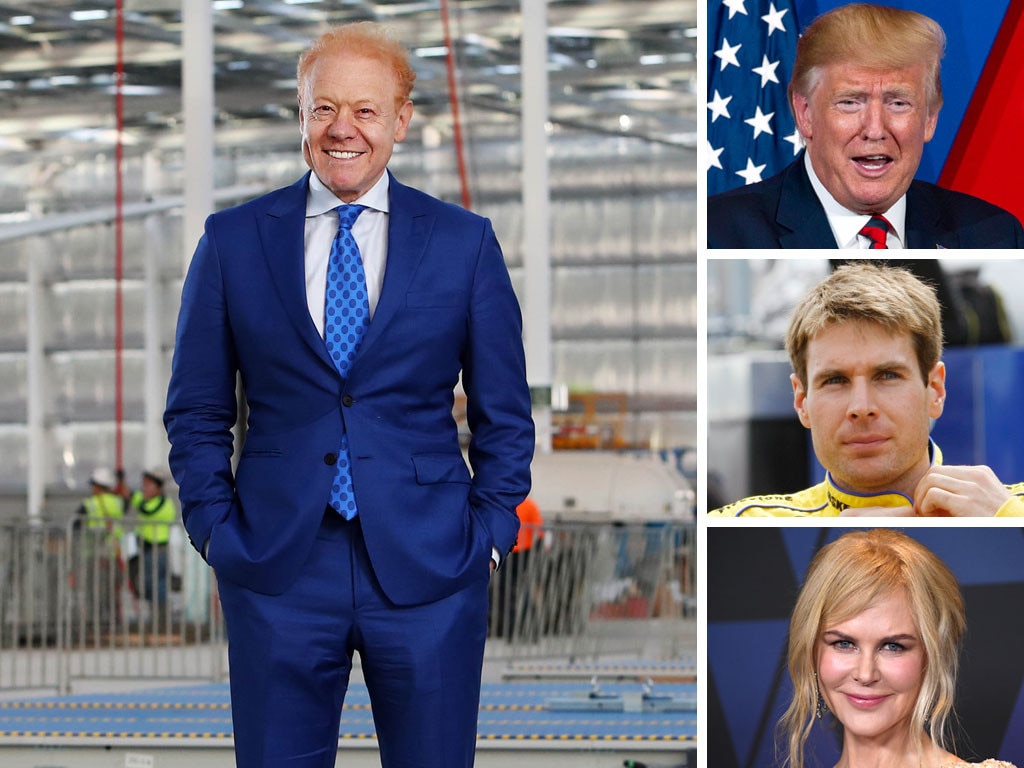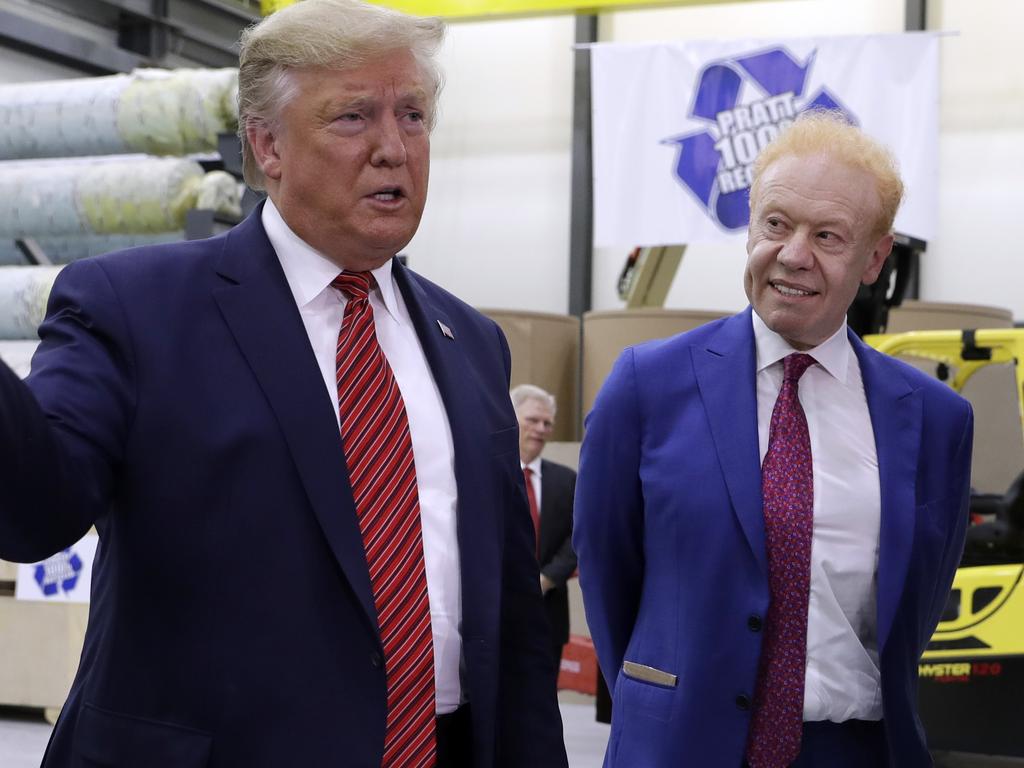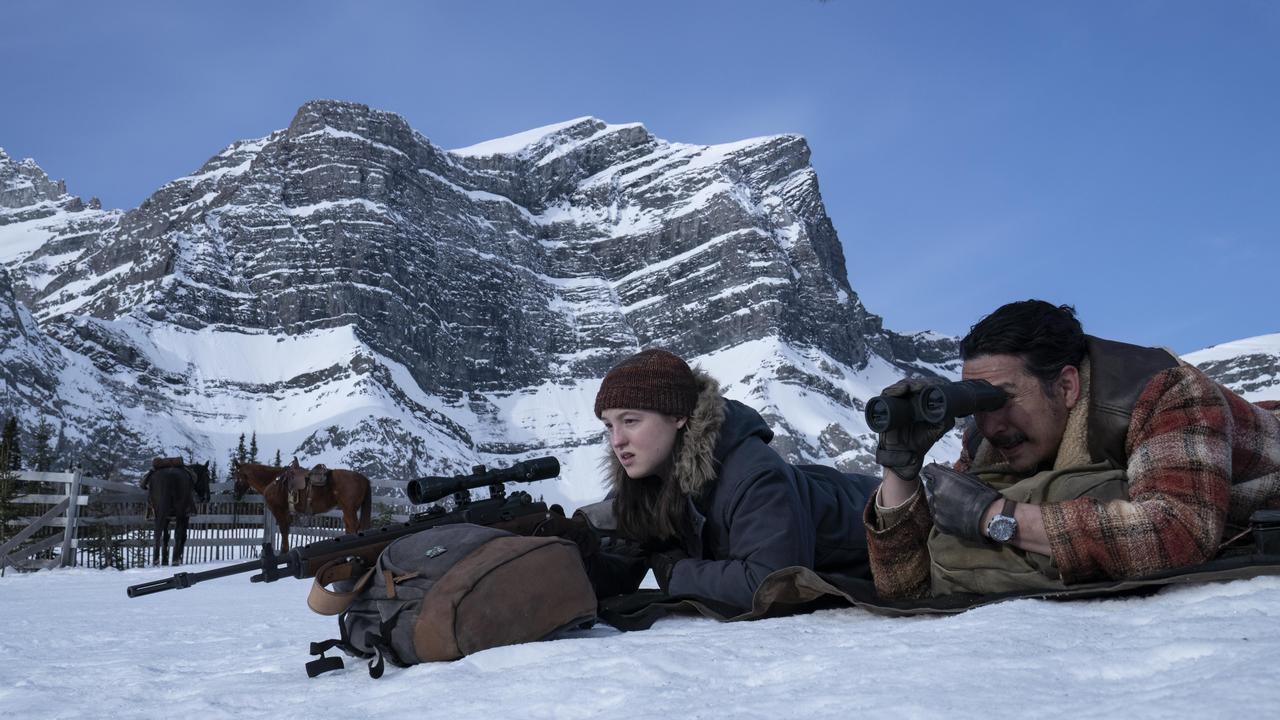Coronavirus: Cardboard king Anthony Pratt in box seat to help out
Anthony Pratt’s company is keeping its factories open and running at full capacity as shoppers’ demand spikes.

Australia’s richest person, Anthony Pratt, says his cardboard box-making and recycling company is keeping its factories open and running at full capacity as shoppers’ demand for food spikes amid the coronavirus outbreak.
Mr Pratt told The Australian that Visy, which has factories across Australia and New Zealand making boxes and packaging for the food industry, needed to keep producing its goods given the vital need for produce to get to supermarkets quickly, as retailers struggle to meet consumer demand.
“As the Prime Minister said earlier this week, we have to keep the supply chains open to supermarkets during this pandemic so Aussies can feed their families,” Mr Pratt said.
“Visy is part of the food chain because we supply the food industry with 70 per cent of its packaging needs. So I can assure all of our customers, the public — and our 5000 employees and their families — that all of our factories are open so we’ll do our bit to keep the supermarket shelves stocked.”
Mr Pratt tops the 2020 edition of The List — Australia’s Richest 250, to be published in The Weekend Australian this Saturday, with a personal wealth of $16.95bn.
He paid tribute to the work of his employees at Visy, and at Pratt Industries in the US.
“It’s a great credit to the Pratt/Visy family, including my 14,000 colleagues (including staff at Pratt Industries) because at the end of the day your legacy is the family you choose,” the billionaire said.
Mr Pratt owns Visy with his sisters Heloise Pratt and Fiona Geminder, and has full ownership of Pratt Industries.
Second on The List is mining magnate Gina Rinehart, with estimated wealth of $16.25bn, while Sydney apartments king Harry Triguboff is third at $15.5bn.
In an interview alongside fellow billionaires Mrs Rinehart and Mr Triguboff for The List, Mr Pratt reveals that Pratt Industries lost money for 14 years in the US after he moved there in 1991 before starting to record a profit.
“Patience is very important (in business),” he said. “Just don’t give up. Just keep going.”
The patience of many investors, and the country’s wealthiest people, will be tested as the year unfolds and the coronavirus pandemic sweeps the world. The rollercoaster ride on the equities market has hit the wealth of some of The List hard in recent weeks, although 64 members have made their money in the property market. As was the case after the 1987 market crash on Wall Street, any fall in property valuations or prices could take 12 to 18 months to shake through, should there be an economic downturn, as is likely.
Most on The List also have their wealth held privately, including the likes of Frank Lowy, who sold out of Westfield in a $32bn deal with French company Unibail-Rodamco in late 2017.
Those with big exposure to the stockmarket have been hit. The share price of Flight Centre, which has three members of The List in chief executive Graham Turner and co-founders Geoff Harris and Bill James, is down about 75 per cent in the past month, while the valuation of Magellan Financial, headed by Hamish Douglass, has halved in value in the same time.








To join the conversation, please log in. Don't have an account? Register
Join the conversation, you are commenting as Logout